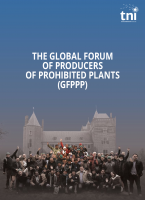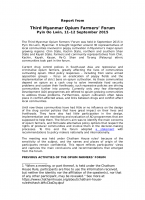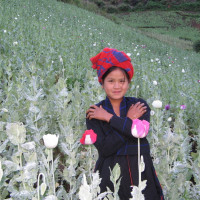The Heemskerk Declaration Final declaration of the Global Forum of Producers of Prohibited Plants
In a global meeting small scale farmers of cannabis, coca and opium from 14 countries discussed their contribution to the United Nations General Assembly Special Session (UNGASS). The UNGASS will discuss all aspects of global drug control policies, including the worldwide ban on the cultivation of coca, poppy and cannabis, an issue the Global Farmers Forum demands that their voices be heard and taken into account.
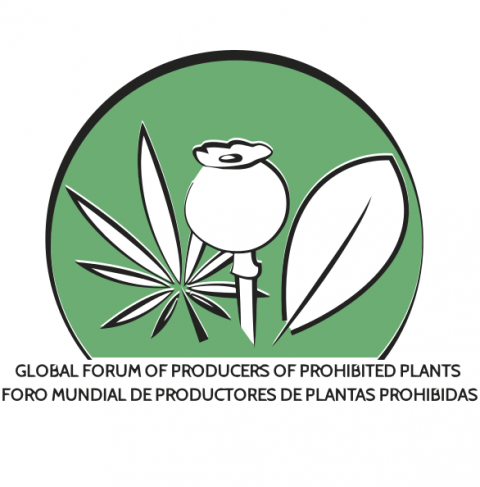
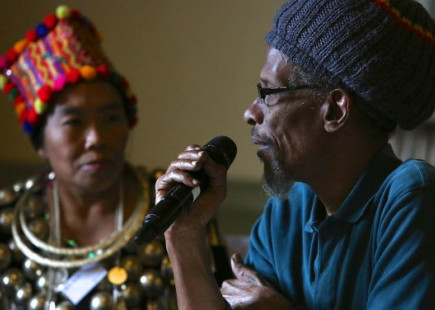
Floris Leeuwenberg
22 January 2016, Heemskerk, Netherlands
Today in a meeting in The Netherlands, small scale farmers of cannabis, coca and opium from 14 countries* discussed their contribution to the United Nations General Assembly Special Session (UNGASS), to be held in New York from 19 to 21 April 2016. The UNGASS will discuss all aspects of global drug control policies, including the worldwide ban on the cultivation of coca, poppy and cannabis, an issue the Global Farmers Forum demands that their voices be heard and taken into account.
Considering:
- To date representatives of small farmers of prohibited plants and affected communities have not been adequately taken into account in international debates on drug policy.
- Inherent contradictions and inconsistencies exist in the application of international drug control, including Alternative Development programs and human rights treaties, which take precedence over the drug control treaties. UN agencies and UN member states are all bound by their obligations under the Charter of the United Nations to promote “universal respect for, and observance of, human rights and fundamental freedoms.”
- A previous Farmers Forum provided input to the UN evaluation of the missed target of reaching a drug-‐free world by 2009. The UN Political Declaration adopted at the time established 2019 as a new target date to “eliminate or reduce significantly and measurably” the illicit cultivation of opium poppy, coca bush and cannabis.
- Taking into account the problems faced by the communities where these plants are cultivated the Farmers Forum discussed the following issues:
- Crop control policies and forced eradication;
- Traditional, medicinal and modern uses of controlled plants;
- Sustainable rural development;
- Drugs and conflict.
Conclusions
1. Forced eradication – chemical, biological, manual or any other form – of crops produced by small farmers is contrary to human rights, causes diverse forms of conflict, expands countries’ agricultural frontier, leads to environmental degradation, causes food insecurity and destroys rural economic survival strategies. It aggravates social problems – as well as problems related to health and internal security -‐-‐ increases poverty, leads to displacement of affected populations, delegitimizes state institutions, militarizes local communities and is a form of undemocratic intervention, forcing those impacted to seek survival strategies in other informal or illicit economic activities and in some cases pushes people to take more radical positions. Finally, forced eradication is counterproductive with regards to sustainable development.
2. The inclusion of the three plants in the international treaties impedes the recognition of both traditional, and modern uses** and the ability to obtain them legally. Not all people have access to medicinal uses and the market is controlled by the pharmaceutical industry. In some countries, laws recognize traditional and medicinal uses. Nutritional uses and other forms of industrialization of these plants have not been widely promoted, despite the fact that there are many examples of community and institutional initiatives that demonstrates the benefits of such use. Recreational use of these plants is completely prohibited even as an increasing number of countries seek to regulate these markets. Producers and users and their organizations, communities and leaders continue to be stigmatized, criminalized and incarcerated.
3. Rural development strategies must promote small-‐scale agriculture. Most participants in the Farmers Forum have not been beneficiaries of Alternative Development or other forms of assistance. Those who have had experiences with Alternative Development programmes affirm that these have largely failed to improve the livelihood of affected communities. The main problems have been the lack of community involvement in the design, planning and execution of the interventions; short-‐term time-‐frames; inadequate technical assistance; foments corruption and funding does not reach the intended beneficiaries; failure to take into account a gender perspective; the use of alternative crops negatively impact the environment and do not promote food sovereignty but focuses on mono-‐cropping, fostering land grabbing for big companies, and a lack of sustained access to land, markets and technologies. The conditioning of development assistance on prior eradication leaves people without sources of income, pushing people back into illicit crop cultivation. Present Alternative Development programs do not envisage the cultivation for licit purposes.
4. The prohibition of coca, cannabis and opium poppy generates conflicts, as the people that grow them are criminalized, their human and cultural rights are violated, they are discriminated against and legally prosecuted. The different levels of conflict that exist have their origins in both drug control policies and the drugs market itself. Conflicts and violence are caused by the interventions of state authorities (police and armed forces), through eradication acts or other interventions; the presence of armed groups and internal wars; ethnical divisions and territorial and border disputes; access to and control of land; access to water and other natural resources/common goods; corruption; migration and displacement; the overload of the judicial system; the illegal trade in arms and precursors and illicit logging; unemployment, amongst others.
Recommendations
1. We reject prohibition and the war on drugs.
2. We demand the removal of coca, cannabis and opium poppy from the lists and articles in the 1961 UN Single Convention and the 1988 Convention. No plant should be a controlled drug under the UN Conventions or national legislation. We claim the right to cultivation for traditional and modern uses of these plants.
3. We call for the elimination of all forms of non‐voluntary eradication.
4. We demand that all affected communities should be involved in all stages of drug policies and development, from the design to its implementation, monitoring and evaluation.
5. In case crop reduction is desirable and feasible it needs to be gradual and reached in dialogue and agreement with the affected communities, based on mutual respect and confidence.
6. The conditioning of development assistance on prior eradication is unacceptable. The proper sequencing of development interventions is fundamental to its success.
7. Integrated sustainable development should be the main intervention for crop producing communities. Such development should promote and protect the livelihoods of small scale farmers and rural workers, and should guarantee access to and control over land and common goods.
8. The state and its institutions will need to assume responsibility to address the needs of the communities involved in cultivation of coca, cannabis and opium poppy.
9. We demand that the farmers and their families involved in the cultivation of coca, cannabis and opium should not be prosecuted by criminal law, or discriminated against.
10. Coca, cannabis and opium poppy and their use should not be criminalized.
11. The expansion of licit markets of coca, cannabis and opium poppy should become part of development strategies.
12. We support the peace process in Colombia and Myanmar, which should be inclusive.
* Albania, Bolivia, Colombia, Spain, Guatemala, Indonesia, Jamaica, Morocco, Mexico, Myanmar, Paraguay, Peru, St. Vincent and the Grenadines and South Africa.
** Traditional use understood as ceremonial, religious, traditional medicinal. Modern is recreational, alimentary, and self-medication.
For further news updates and information, please visit the official website of the GFPPP.
-
Declaración de Heemskerk - FMPPP (Español) (PDF, 190.39 KB)Average time to read: 10 min minutes

